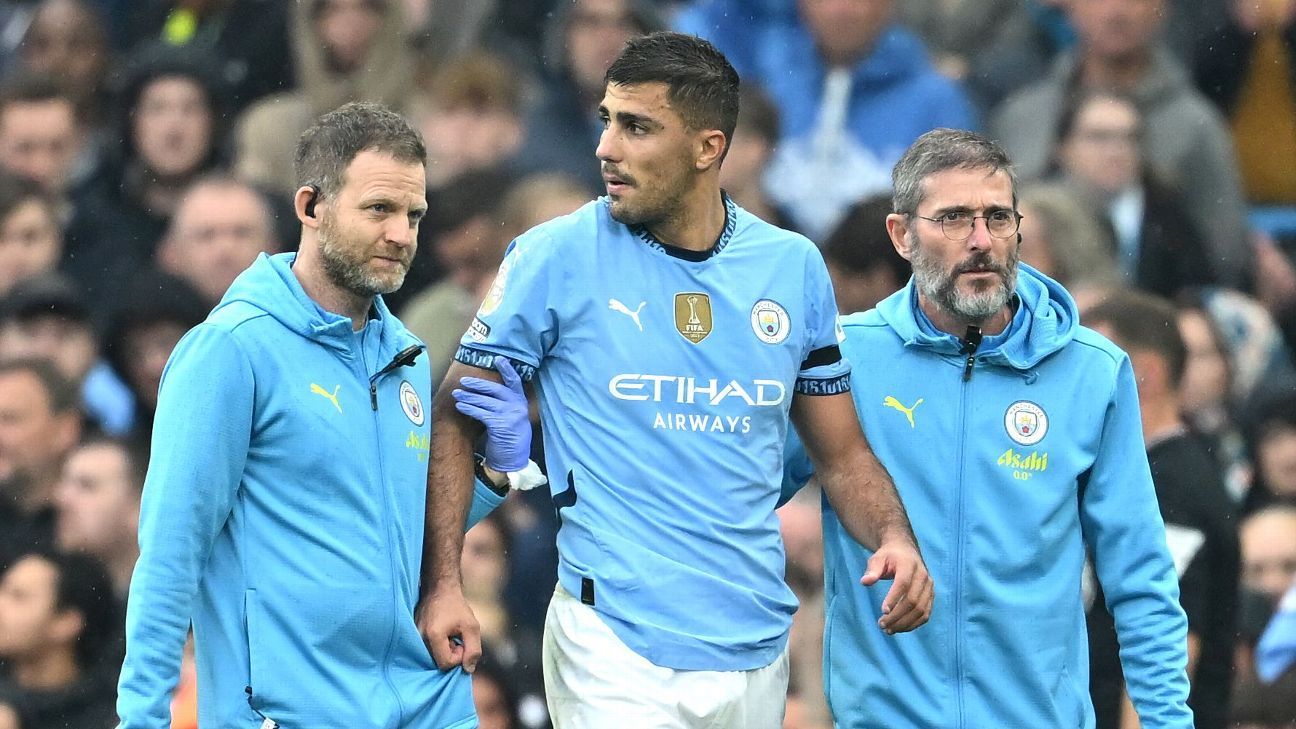Adam Rittenberg

Adam Rittenberg
ESPN Senior Writer
- College football reporter.
- Joined ESPN.com in 2008.
- Graduate of Northwestern University.
Dan Murphy

Dan Murphy
ESPN Staff Writer
- Covers the Big Ten
- Joined ESPN.com in 2014
- Graduate of the University of Notre Dame
Aug 2, 2023, 10:45 AM ET
Former Northwestern football player Ramon Diaz is filing a lawsuit against the school Wednesday, alleging he was hazed and mistreated in the program largely because of his race.
Diaz, an offensive lineman for the Wildcats from 2005 to 2008, alleges that he was subjected to hazing that included the mocking of his Mexican heritage along with "microaggressions" from comments made by former offensive line coach Bret Ingalls as well as sexualized acts that have previously been alleged by other former players.
He says several Northwestern coaches witnessed hazing incidents or should have been aware of them. The lawsuit claims that two former assistants -- Ingalls and James Patton, who also coached the offensive line -- made "racist, embarrassing, degrading, and harassing remarks" toward Diaz and other players. According to the lawsuit, Ingalls and Matt MacPherson, a longtime Northwestern assistant still with the program, witnessed hazing incidents and "took no action to address and/or prevent" them from happening.
Diaz's lawsuit also alleges that Adam Cushing, Northwestern's tight ends coach at the time, should have been aware of the hazing and mistreatment.
"There is a culture that has been condoned by the athletic department and university that has allowed these coaches to behave the way they do," Diaz told ESPN. "I believe focus should be shifted toward the athletic department specifically, but Northwestern at large. The atmosphere will not change systematically if that does not happen."
MacPherson, Northwestern's defensive backs coach and associate head coach, has been mentioned in other lawsuits and is being investigated by the school.
Patton, who left Northwestern after Diaz's freshman year in 2005, is currently the offensive line coach at Miami (Ohio). Ingalls, who coached Diaz during his final three seasons, is an offensive analyst at Michigan. Cushing, who remained at Northwestern through the 2018 season, now serves as Duke's offensive line coach.
Northwestern said in a statement to ESPN that it is reviewing the allegations against MacPherson.
"We will review any specific allegation involving current coaches or players and will take the appropriate disciplinary actions based on the facts," the school said. "We are committed to do whatever is necessary to address hazing-related issues and ensure that our athletic program remains one that our entire community can be proud of and one that is fully aligned with and reflects our values."
Patton, though a representative, declined to comment on the lawsuit. Ingalls and Cushing did not immediately respond to requests for comment Wednesday.
Diaz is the ninth former Northwestern player to sue the school since it fired head coach Pat Fitzgerald on July 10, three days after the university announced that an investigation into hazing allegations made by a recent former player had been largely corroborated. As a clinical therapist, Diaz said he felt compelled to speak out after reading a July 8 statement, attributed to the Northwestern football team, defending Fitzgerald and saying the allegations had been "exaggerated and twisted." He said he spoke to ArentFox Schiff, the law firm that oversaw Northwestern's investigation, but never received a call from attorney Maggie Hickey, the lead investigator.
Northwestern on Tuesday announced that former U.S. Attorney General Loretta Lynch would lead investigations into the culture of the school's athletics department and how the department detects threats to athletes and implements accountability mechanisms. It is one of three separate investigations the school has launched since Fitzgerald was fired.
No current or former assistants are listed as defendants in Diaz's lawsuit, and no players are named. In addition to Northwestern and its board of trustees, the defendants include Fitzgerald, university president Michael Schill, former president Morton Schapiro, athletic director Derrick Gragg and former athletic director Jim Phillips, who arrived before Diaz's senior season and now serves as ACC commissioner.
"There is a culture that has been condoned by the athletic department and university that has allowed these coaches to behave the way they do. I believe focus should be shifted toward the athletic department specifically, but Northwestern at large. The atmosphere will not change systematically if that does not happen."
The lawsuit states that Fitzgerald, who took over as Northwestern coach in 2006 following the death of Randy Walker, knew or should have known that the hazing and abuse was occurring in the program. Fitzgerald has repeatedly denied any knowledge of hazing within the program.
Diaz told ESPN that his racial mistreatment began during the first week of Northwestern's training camp in Kenosha, Wisconsin, prior to his freshman season in 2005. He said upperclassmen shaved "05/05," into his hair for Cinco De Mayo to mock his Mexican heritage.
"There were so many things that were said to me, just the bigotry and the racism," Diaz told ESPN. "Why 'Cinco de Mayo' for me? They could have shaved anything in my head. Somehow, upperclassmen thought that would be the funniest. To ridicule a very important part of my national origins is really just mocking my father and what he did coming over here.
"I've said it to my therapist many times: Something was taken from me immediately. The joy I had to play the game very quickly started to dwindle."
Diaz said Ingalls would make derogatory comments about his race, which "haven't left me since I finished playing." One of Diaz's former teammates told ESPN he witnessed Ingalls making racial remarks toward Diaz.
"We were in Kenosha watching film and Coach Ingalls said something to the extent of, 'Man, this room is really dirty. It's a pigsty. Ramon, I know your parents clean up after folks like this. How should we do it?'" said the former offensive lineman, who spoke on the condition of anonymity. "There were some really foul things that ended up happening under his watch."
Diaz noted that Cushing, then the team's tight ends coach, was often in the same room when Ingalls made the comments and "could have said anything [to stop the behavior]." He said the "microaggressions" from Ingalls continued and extended to a Black teammate who also played offensive line.
He said he did not confront Ingalls or report his behavior because he wanted to earn Ingalls' respect.
Along with the racial mistreatment, Diaz recalled hazing incidents such as the "car wash," where naked players would lather themselves with soap and block the entrance to the showers, forcing teammates to rub against them as they went by. Diaz said he refused to do naked pull-ups at preseason camp but saw others do so.
Diaz could not recall whether Fitzgerald specifically addressed hazing or racial mistreatment after taking over as head coach.
"People knew that this was happening. People would comment to me behind closed doors about Bret's treatment of me," Diaz said. "I never felt safe to share these concerns with anyone within the organization because I believed it would come back to Bret and I would lose playing time or I wouldn't play at all."
Diaz battled injuries throughout his Northwestern career and did not play in any games.
Years after he finished at Northwestern, Diaz shared social media posts praising his experience at Northwestern and Fitzgerald. He wrote in 2019 that the culture Fitzgerald created within the football program "is one that I speak of with great admiration to youth athletes." Diaz added: "Coach Fitz continues to influence my life today."
Asked about how he balances those posts with his current feelings about how he was treated, Diaz said he was trying to "erase and repress" his negative experiences because he is proud of graduating from the school and wanted to believe he had "somewhat of an experience that wasn't awful."
He said he was diagnosed with depression during his time at Northwestern and later with post-traumatic stress disorder while he tried to cope with his experience on the football team by at times denying the problems he witnessed.
At a news conference Wednesday in Chicago, Diaz said he attempted suicide in 2007 "as a result of the bigotry, racism and emotional abuse I suffered."
"The brain will function to see things differently because you want it to," Diaz told ESPN. "And I wanted to. I always wanted to see things differently because I felt it was so unfair what was taken from me and I wanted to try to reconcile that in my mind."
.png)
 1 year ago
7
1 year ago
7









 English (US) ·
English (US) ·